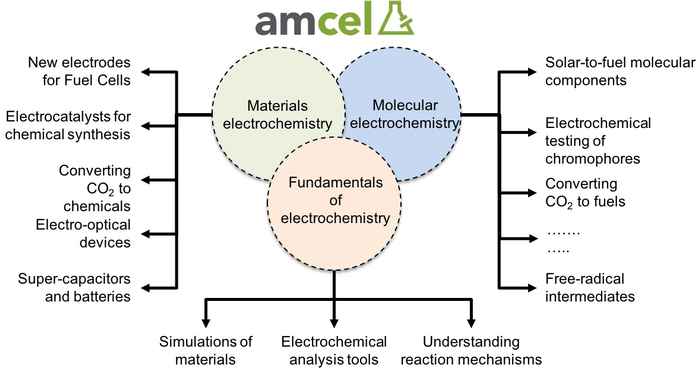About Amcel
A joint initiative in electrochemistry
Amcel is a joint initiative of the Amsterdam electrochemistry community, bringing together researchers who are working on, and interested in electrochemistry and its applications. Established on the initiative of the University of Amsterdam's Van 't Hoff Institute for Molecular Sciences (HIMS), Amcel connects researchers from institutes and companies at Amsterdam Science Park and the wider Amsterdam area. Industry is represented in the form of the Avantium Science Park lab.
